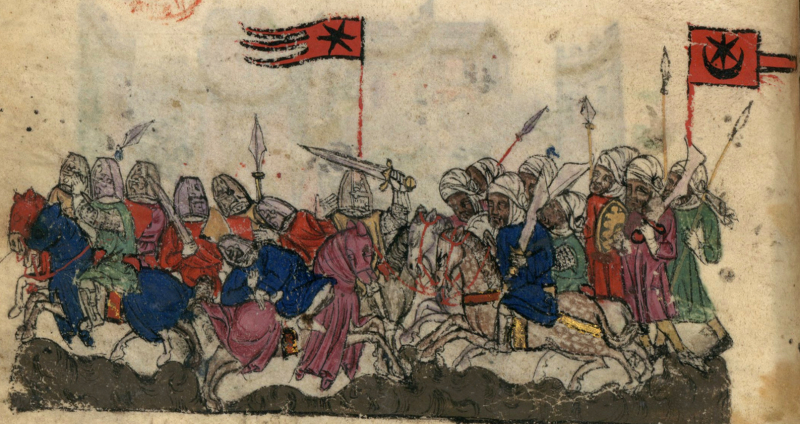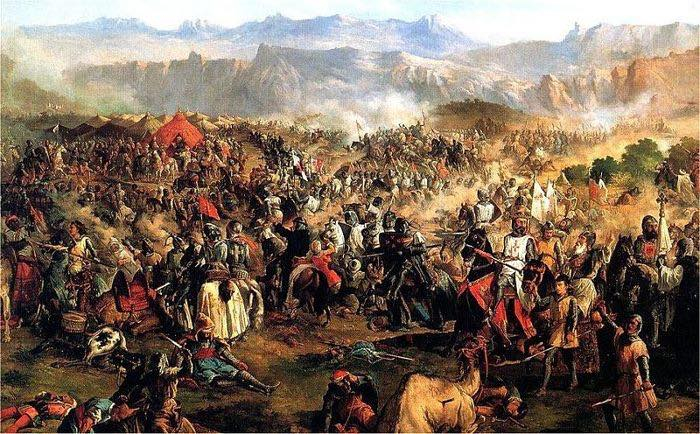Battel of Yarmouk
The Byzantine Empire's army and the Muslim forces of the Rashidun Caliphate engaged in significant combat at the Battle of the Yarmouk. The conflict took place over the course of several engagements that lasted six days in August 636 south of the Sea of Galilee, close to the Yarmouk River, in what are now the borders of Syria-Jordan and Syria-I Palestine. The fight ended with a total Muslim victory, ending Byzantine rule in Syria. After the death of the Islamic prophet Muhammad, the Battle of the Yarmouk, one of the most important conflicts in military history, signaled the beginning of the first major wave of early Muslim conquests and the quick spread of Islam throughout the then-Christian Levant.
The Arab assault had been halted, and in May 636, Emperor Heraclius had dispatched a sizable expedition to the Levant to reclaim lost land. The Arabs strategically retreated from Syria as the Byzantine army drew near, reassembled all of their forces near the Arabian Peninsula on the Yarmouk plains, where they were bolstered, and beat the numerically larger Byzantine army. The battle solidified Khalid ibn al-reputation Walid as one of history's greatest tacticians and cavalry commanders and is primarily recognized as his greatest military triumph.
The conflict in Yarmouk was a crushing setback that allowed Islam to establish itself in this region by taking control of the Christian Jerusalem and the holy land of Palestine. Since this triumph, Islam has continued to expand and capture new lands: Egypt (642), Persia (651), Islam stretched from North Africa to India, posing a threat to Constantinople, the capital of the Byzantine Empire.













